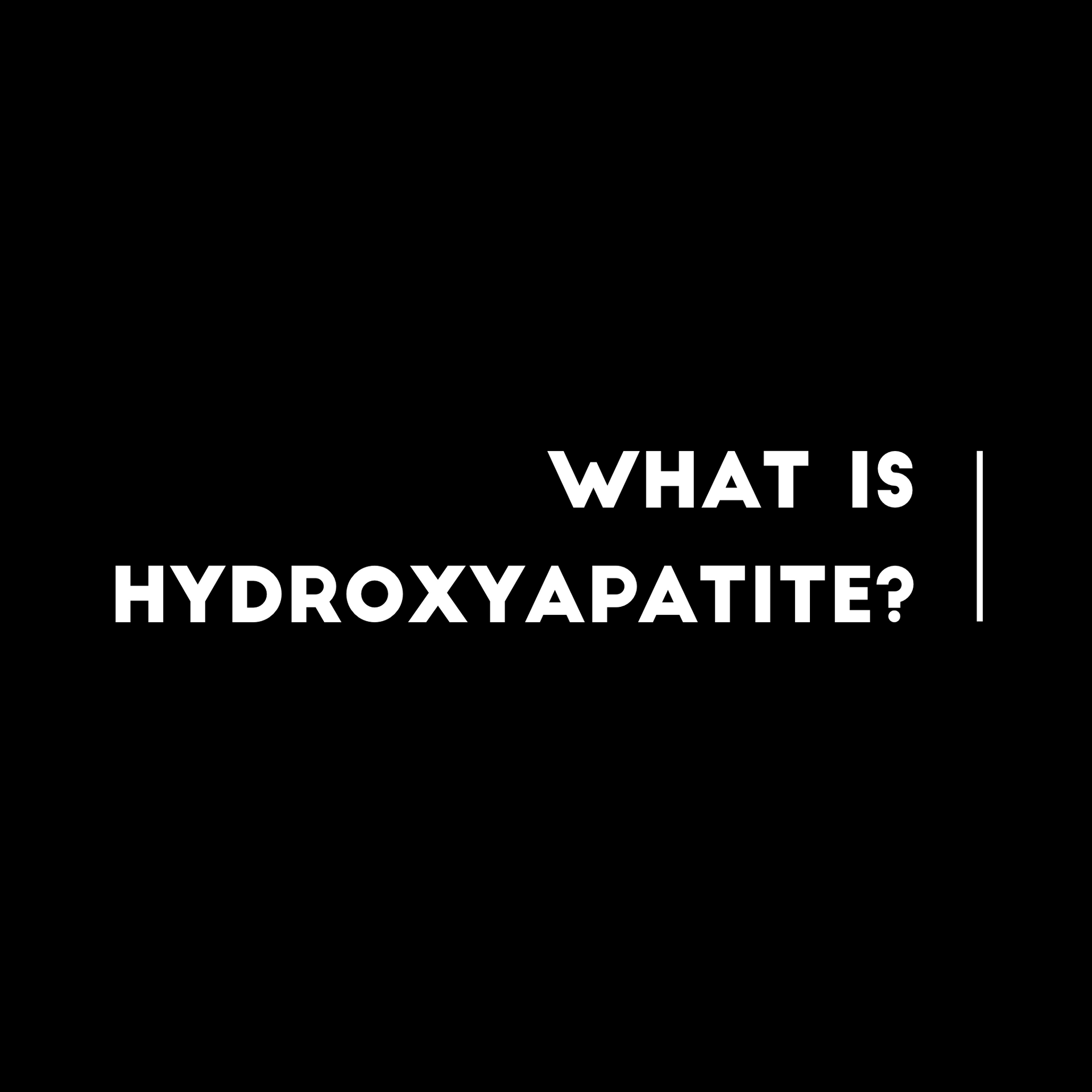What is hydroxyapatite?
Hydroxyapatite (HAp), in its natural form, is a form of calcium that makes up 97% of your tooth enamel and 70% of the dentin of your teeth. The rest of your enamel is actually composed of water, collagen, and other proteins.
The chemical formula for hydroxyapatite is Ca5(PO4)3(OH).
Fun fact: hydroxyapatite is also the major (60%) component of bones. In addition to toothpaste, it’s been used in osteopathic research to help strengthen bone material. It also shows promise for orthodontic restorations.
The high HAp concentration in tooth enamel is the reason it’s so strong.
Hydroxyapatite Toothpaste for Tooth Remineralization
The main draw of hydroxyapatite in toothpaste is that it helps to remineralize (rebuild) tooth structure without any known side effects.
Tooth decay grows and destroys teeth when the remineralization of your teeth outweighs demineralization. Both of these processes happen all the time in your mouth and are impacted by mouth breathing, your diet, your oral hygiene, and ultimately, your oral microbiome.
You can heal cavities and prevent new ones from forming by remineralizing your teeth. Hydroxyapatite is one very effective way to do that. Fortunately, hydroxyapatite is biocompatible with your teeth — because it’s literally the same material as the majority of your tooth structure!
Not only is it biocompatible, but it’s totally non-toxic — no Poison Control warning needed — and strengthens teeth. In fact, it’s not just compatible with your body — it’s literally “biomimetic,” which means your body recognizes it as familiar structure that belongs there.
The best way to use hydroxyapatite toothpaste to prevent and reverse cavities is to leave it on your teeth after brushing. Translation: Don’t rinse your mouth after brushing with HAp.
Because your teeth recognize this compound, they absorb and uptake hydroxyapatite down to the root. This is most beneficial when we’re talking about tooth decay because HAp can reach down into the furthest area of decay to rebuild enamel on any tooth surface.
The way your teeth react to hydroxyapatite toothpaste also makes them more resistant to plaque buildup and “acid attacks”/enamel erosion that leads to tooth decay. It can even make them look “glossier.”
In short, here are 6 major reasons to give hydroxyapatite oral care a try:
1. It can prevent and heal cavities, as well as decreasing sensitivity. Every time HAp has been pitted against fluoride toothpastes, it either performs equally well or better as a remineralizing agent.
2. It’s non-toxic & biocompatible. One of the biggest drawbacks of fluoride toothpaste is that fluoride, at high doses, is a neurotoxicant (a toxin that impacts the brain). However, hydroxyapatite toothpaste is a biocompatible substance that your body recognizes as something that belongs there.
3. It may help teeth appear whiter. Without any whitening ingredients, hydroxyapatite toothpaste may help to brighten and whiten your teeth.
4. It’s good for the oral microbiome. Using HAp toothpaste will help protect your teeth from “acid attacks” by bacteria, but without wrecking your oral microbiome. Fluoride, on the other hand, is bactericidal and tends to kill off bacteria in the mouth.
5. It’s resistant to acidic pH. The pH of the mouth should remain slightly alkaline to avoid inflammation and oral disease.
6. It may improve gum health. Preliminary results have found that the use of HAp toothpaste may help improve gum health in patients with gum disease.
Primary source: AskTheDentist.com
